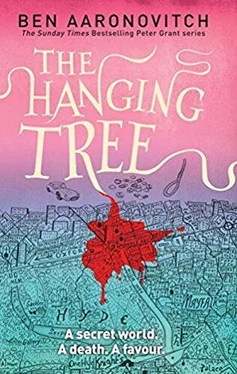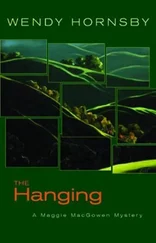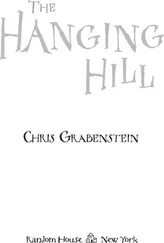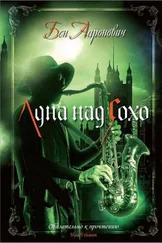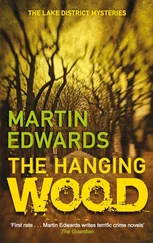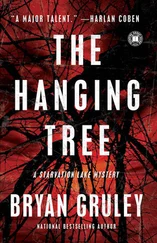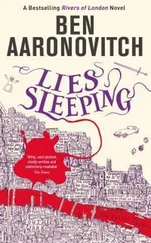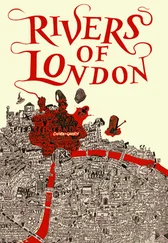But I was recording the conversation on a transistorised Dictaphone I’d picked up on eBay for exactly this purpose, and taped to the bottom of the coffee table. Transistors don’t last much longer than microprocessors when exposed to magic, but magnetic audio tape does. Which meant that even in the event of a major disagreement I’d still have a record. And that, boys and girls, is why we spend so much time in the lab doing experiments.
‘I grew up on a farm in Africa,’ said Lady Helena. ‘My father had inherited a title and not much else from his father and so after he was demobbed from the RAF he sought his fortune there.’
There hadn’t been any other kids and she’d grown up ‘like a weed’ she said, the only child for a hundred miles around.
‘This was in the old days before the poachers decimated the local game,’ she said. ‘You still got animal attacks on the livestock, and once a leopard took a couple of village children.’ Her father had led the hunting party that had tracked it down and killed it. He’d sold the skin to help support the farm, but had kept the head as a trophy.
‘She still has it,’ said Caroline. ‘In a box in the attic – we used to spook ourselves by sneaking up to look at it.’
‘I wondered why things in the attic kept moving about,’ said Lady Helena. ‘I thought it might be a poltergeist. You lot are lucky I didn’t put down a trap.’
I glanced over at Nightingale, who was probably thinking the same thing I was: what kind of trap, and where did you learn how to make one?
Her mother hadn’t approved of the killing. As far as she was concerned, man was the interloper in Africa and shouldn’t be surprised when the animals merely followed their instincts.
‘If people aren’t willing to pay the price, my darling,’ her mum had said, ‘then perhaps people should live somewhere else.’
Not that she feared for her daughter, who was left to explore on her own. Although generally speaking one of the houseboys would be told to keep an eye on her.
‘She’d already taught me the snapdragon by the time I was seven,’ said Lady Helena. Nightingale asked for a demonstration; she made a flicking gesture with her hand and there was a flash and a loud crack that echoed off the walls and caused Molly to suddenly appear behind Nightingale’s chair.
It was too fast for me to read her signum but I got the same hint of burning candlewax that I’d felt in Harrods during the fight.
Nightingale asked Molly if we might have a fresh pot of tea. Caroline nodded enthusiastically at this and helped herself to a Manchester Tart – or it might have been a Liverpool Tart, I can’t always tell them apart.
‘What did the locals think about the magic?’ I asked, thinking of my mum, who has definite views about spells, witches and where they fit into a well organised society – i.e. not around her.
‘These were tribesman,’ said Lady Helena. ‘They already believed in magic. I don’t think they saw anything strange in it – even if we were wazungu .’
They were much more enthusiastic about her mother’s ability to set bones and treat injuries. Nightingale asked where she’d learnt those particular skills.
‘The basics were handed down,’ said Lady Helena. ‘But she refined the techniques working on her animals.’
‘What about the natives?’ I asked.
Lady Helena glared at me and then looked away.
‘You have to understand,’ she said, her eyes on Nightingale. ‘There were no hospitals or clinics nearby – she couldn’t turn people away.’
Nightingale nodded understandingly.
There were limitations to what her mother could do. Gross physical damage, broken bones, cuts and abrasions were easy enough. But not diseases or chronic conditions.
‘Cancer,’ said Lady Helena bitterly. ‘Obvious tumours she could excise and then promote healing at the site. But she couldn’t reach anything systemic. Including her own leukaemia.’
She hadn’t told her family either, until it was too late for chemotherapy.
‘This was after the Emergency,’ she said, ‘after we’d moved to Uganda.’
I wanted to ask what kind of formae her mother had used to knit bones and heal tissue, but Nightingale had discussed this with me in advance.
‘Please try not to be distracted by the details, Peter,’ he’d said. ‘We want to know about her connection to Fossman and what she knows about the Faceless Man. If all goes well, there’ll be plenty of time to satisfy your curiosity later.’
My curiosity? I thought, as Lady Helena talked about bones healing in days not weeks. Dr Walid’s going to break his Hippocratic oath and kill us because we didn’t invite him along. Thank god I’ll have the recording to keep him sweet.
After her mother died, her father packed her off to posh school to finish her education. But this was London in the sixties and there was no end of mischief a fearless young woman could get up to in those days. Stripping off for David Bailey was the least of it.
‘You know the list, darling,’ she said to Nightingale. ‘Sex, drugs, rock and roll. But of course I found myself drawn into what they call the demi-monde.’ She looked at me. ‘French for half-world,’ she said, obviously unaware of the existence of Google. ‘A bit more exclusive in those days, less fashionable.’ She grinned. ‘Less safe.’
She met a young man called Albert Woodville-Gentle there, who could do magic.
‘Not as well as me,’ she said. ‘He was all bash, bash, bash – no finesse.’
‘You were lovers?’ asked Nightingale.
‘On occasion,’ said Lady Helena. ‘When the mood took us.’
‘Friends with benefits,’ said Caroline.
‘Such a vulgar term,’ said Lady Helena.
Caroline caught my eye and mouthed fuck-buddies behind her mum’s back.
Magic was what drew them together. They spent the summer of ’66 breaking the bank in Monte Carlo and then wintered in Tangiers spending the proceeds. All the time teaching each other magic and refining their technique.
‘And having spectacular sex on the roof,’ said Lady Helena. ‘With Chris Farlowe and Procol Harum on the radio.’
Caroline winced.
They arrived back in London on a grey day in October ’67 and found everything had changed.
‘You could practically feel it oozing out of the stones,’ said Lady Helena. ‘And there were new faces in the old haunts. It wasn’t the London we’d known; it felt dangerous, alienating. At least that’s how I felt.’
Albert Woodville-Gentle seemed to find it more agreeable.
‘By that time I’d already set my sights on India,’ she said and off she went, although via BOAC rather than the hippy trail. ‘I studied at an ashram, got myself a guru or two.’ But she couldn’t find an indigenous magic tradition. ‘Although I got the strong sense that there was something going on under the surface. I didn’t know about the Rivers in those days, or I might have looked in somewhat different areas. They knew about your lot, though,’ she nodded at Nightingale. ‘I’m not sure you left a good impression in India.’
‘So you didn’t find what you were looking for?’ asked Nightingale.
‘Yes and no,’ said Helena. ‘I never found an Indian magical tradition, at least not one based on what we might understand as magic.’ But she did find a vocation, a sense of purpose, in the slums of Calcutta.
‘Unless you’ve been there you can’t believe what it’s like,’ she said. ‘That vast press of humanity crowding in from all sides, the noise, the colour, the chaos, the smells and the pain, the suffering. If you plan to stay you either hide behind walls or you roll up your sleeves and try to help.’
Читать дальше
